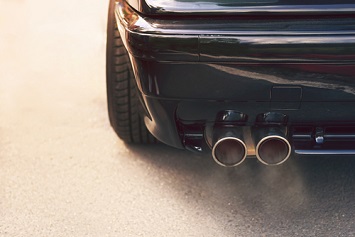On May 27, 2020, 23 attorneys general and a handful of city attorneys filed a lawsuit challenging the Trump administration’s Safer Affordable Fuel-Efficient Vehicles (SAFE) rules revising extant fuel efficiency and emissions standards for passenger vehicles. SAFE effectively undoes President Barack Obama’s 2010 Clean Car Standards (CCS), which set forth aggressive fuel economy and greenhouse gas emissions requirements for vehicle models through the year 2025.
The Environmental Protection Agency (EPA), the National Highway Transportation Safety Administration (NHTSA), and the California Air Resources Board (CARB) jointly created the CCS to synthesize state and national standards. The policy was considered one of the country’s most significant responses to escalating concerns over climate change.
The Trump administration began to unwind the CCS in 2018 when it reversed a 2017 CCS midterm evaluation that concluded the rules continued to be technologically feasible and cost-effective. In response to the reversal, California, 17 other states, and the District of Columbia sued the federal government. Since then, the federal government has taken further steps toward deregulation, including revocation of California’s Clean Air Act (CAA) waiver, which allowed it to set its own vehicle emissions standards.
The EPA’s announcement of SAFE on March 31, 2020, provoked the present lawsuit. The new rule guts both the CCS’s anticipated 5% increase in annual fuel efficiency (now a 1.5% improvement requirement) and emissions reduction goals. Critics claim that the rollback will allow the release of hundreds of millions of metric tons of carbon emissions over the next 10 years, resulting in higher levels of air pollution and the speeding of climate change-related catastrophes like sea level rise, plant and animal extinction, extreme weather events, drought, famine, and human migration.
The Trump administration argues that the revised regulations will boost the auto industry and the economy and reduce road accidents because drivers will be able to afford safer, newer cars. Consumer advocates counter that the relaxed standards will reduce neither the cost of vehicles nor road accidents but will result in greater consumer expenditure on gasoline.
States Seek Judicial Intervention
The attorneys general have filed a petition for review with the U.S. Court of Appeals for the District of Columbia Circuit after having exhausted the requisite administrative channels. The suit, led by California Attorney General Xavier Becerra, will claim that there is no legitimate basis for the policy and its foundations rest on faulty modeling, baseless assumptions, and a “fundamental misunderstanding of consumer behavior.”
The states also assert that the Trump administration ignored red flags from its own EPA staff. In pushing the rule through, the states argue, the EPA and NHTSA have contravened several federal laws, including the CAA, the Energy Policy and Conservation Act, and the Administrative Procedure Act. Several environmental organizations have also filed suit citing public welfare concerns such as respiratory disease linked to increased emissions.
For their part, automakers are not necessarily in favor of the changes. At least four major manufacturers, including Volkswagen, BMW, Honda, and Ford, have said that they will continue to adhere to the stricter tailpipe emissions standards set forth by California and 13 other states. On the other hand, the Alliance for Automotive Innovation, an organization comprising significant players such as Toyota and GM, has defended the changes.
The lawsuit is the latest strike in the environmental policy battle raging between various states and President Donald Trump, who declared the rollback of the CCS a major deregulatory victory. Analysts state that the president’s move is a thinly veiled endorsement of the fossil fuel industry. Regardless of motive, the stage is now set for a litigious showdown. Many expect the dissatisfied loser of the federal appellate case to seek recourse with the Supreme Court.

